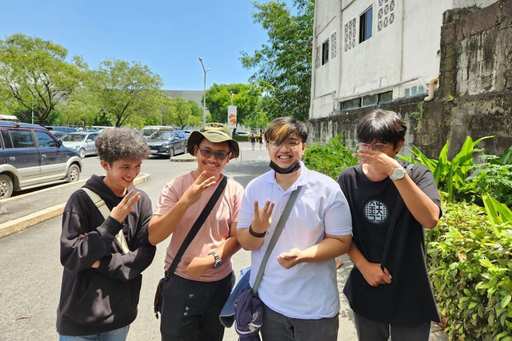
These Gamers Make $50 Everyday For Reporting Broken Manholes As They Play
In the bustling city of Valenzuela, just outside of Manila, a group of people armed with their smartphones gather on a hot Saturday afternoon. Their mission: find and photograph manholes and utility poles.
- Published:
- Edited:
In the bustling city of Valenzuela, just outside of Manila, a group of people armed with their smartphones gather on a hot Saturday afternoon. Their mission: find and photograph manholes and utility poles. This might sound peculiar, but they are, in fact, participants in a groundbreaking initiative that leverages crowdsourcing and gamification for the sake of urban infrastructure.
Their connection point is the Discord channel for Tekkon, an innovative app that merges the captivating qualities of Pokemon Go with the objective of collecting data that aids in the maintenance of power lines and water networks. Developed by the Whole Earth Foundation, Tekkon aims to significantly reduce the cost of maintenance for public utilities by encouraging everyday citizens to contribute valuable data about their communities' infrastructure.
Tekkon takes a playful approach to this serious task. Users adopt digital dog avatars that they "walk" around cities, snapping pictures as they go. In return for their efforts, they earn points convertible into cryptocurrency.
Isaiah Demdam, a 21-year-old college student, organizes local meet-ups for Tekkon users in the Philippines after becoming inspired by similar activities in Japan. "We're doing this because we want to help our local community," Demdam emphasizes, highlighting the social impact of the Tekkon initiative.
Tekkon is the brainchild of Japanese entrepreneur Takashi Kato, founder of the Whole Earth Foundation and previously, Fracta Inc., a startup that utilized software to pinpoint decay in urban water networks, helping cities, utilities, and construction companies minimize unnecessary excavation.
Through his experiences, Kato observed glaring inefficiencies in the infrastructure sector, particularly in utilities like water and gas. “There’s no competition. I can do something in order to provide more efficiency to infrastructure,” Kato explains.
In Japan, with its aging infrastructure constructed largely during the post-war boom years, the issue of escalating maintenance costs looms large. As the country’s population grows older, the rising costs of social security spending, coupled with dwindling city budgets, leave public utilities struggling to maintain infrastructure at the rate of decay. Kato's solution, Tekkon, offers a unique solution to these mounting challenges.
The potential implications of this situation are serious. The Ministry of Land, Infrastructure, Transport, and Tourism estimates that by 2033, over two-thirds of highway bridges, half of tunnels, and 24% of sewer pipes in Japan will be more than 50 years old. Furthermore, natural disasters, such as earthquakes and typhoons, pose a threat to the country's utility poles. Through Tekkon, data about these infrastructural elements can be sold to utility companies to pre-empt costly damages.
Tekkon has already gained traction in Japan, with data collected from 1.8 million manholes out of 15 million nationwide. One of its partners, Tohoku Electric Power Co., serves Japan’s northeastern region, and discussions are ongoing with other utility companies.
In the Philippines, where damaged manholes, blocked drains, and tangled clusters of utility wires pose significant problems, Demdam and his fellow Tekkon users hope to make a tangible difference in their communities. Inspired by a childhood of navigating flooded streets, Demdam is motivated to assist local authorities in improving infrastructure, thus contributing to the wellbeing of his community.
Through a combination of technology, social engagement, and a fun, gamified approach, Tekkon is transforming the way public utilities manage infrastructure maintenance. In so doing, it provides a powerful example of how creative solutions can address even the most seemingly intractable problems.


